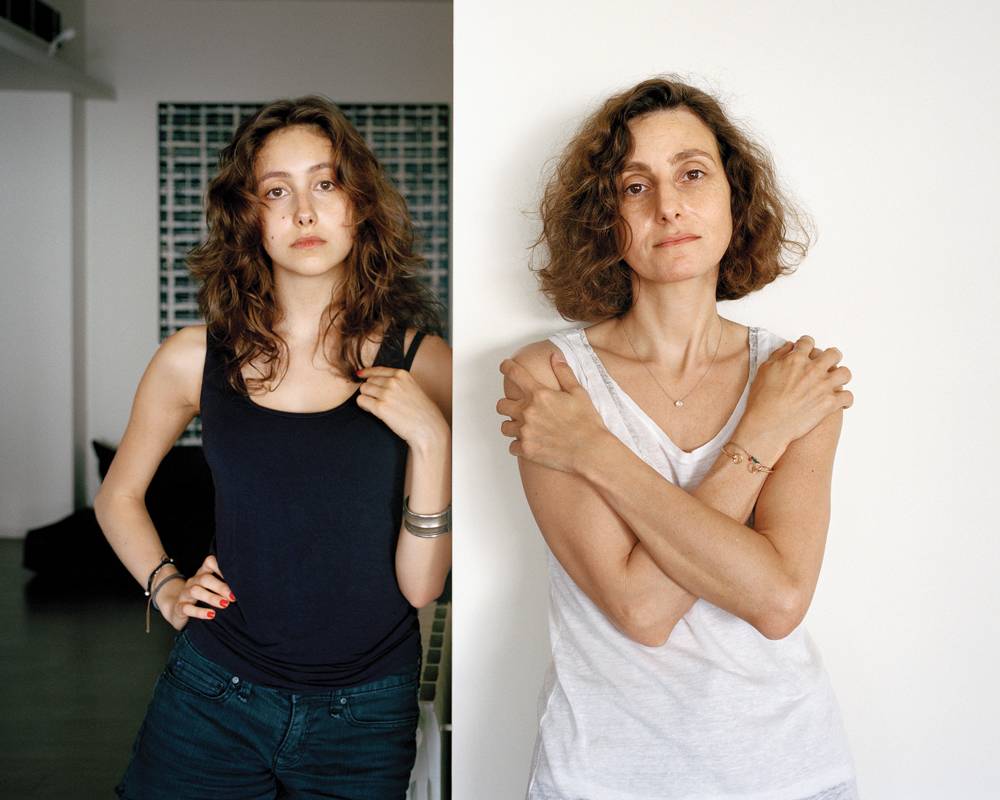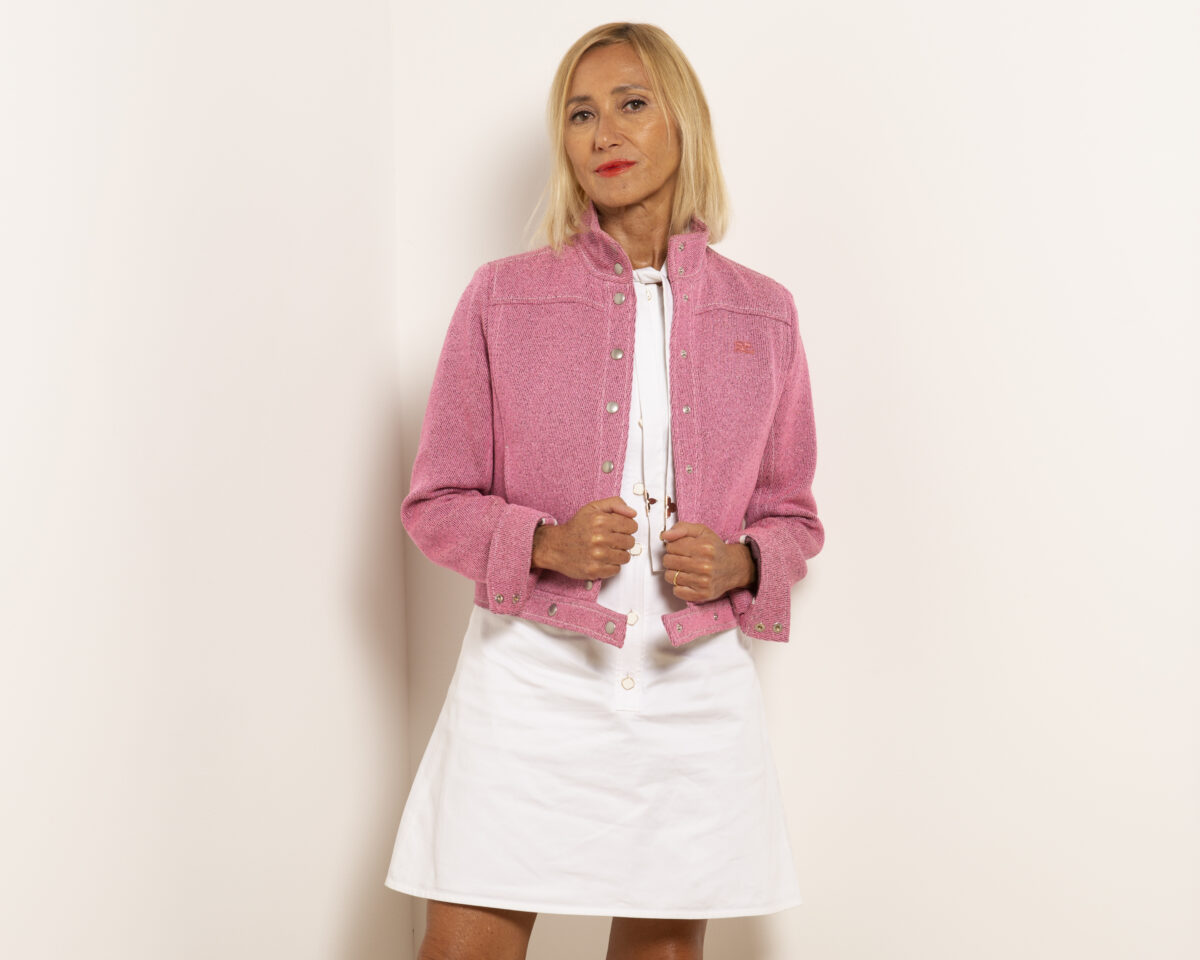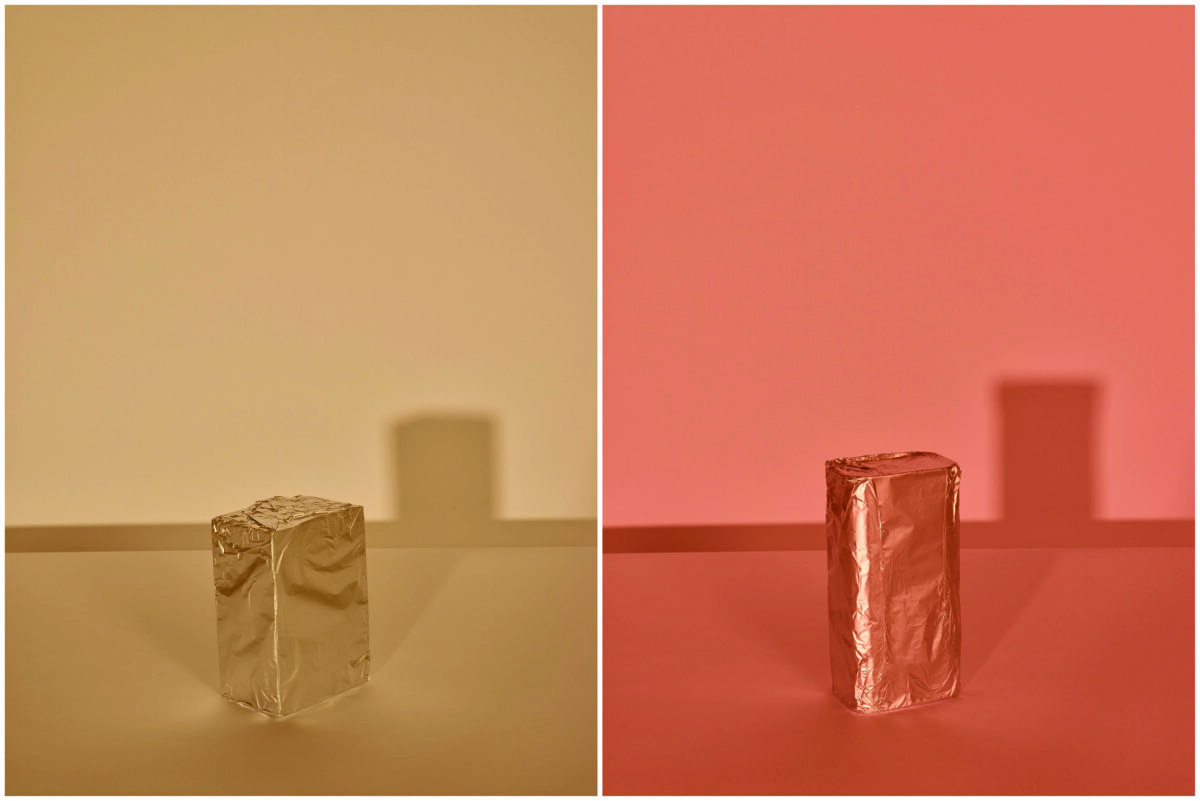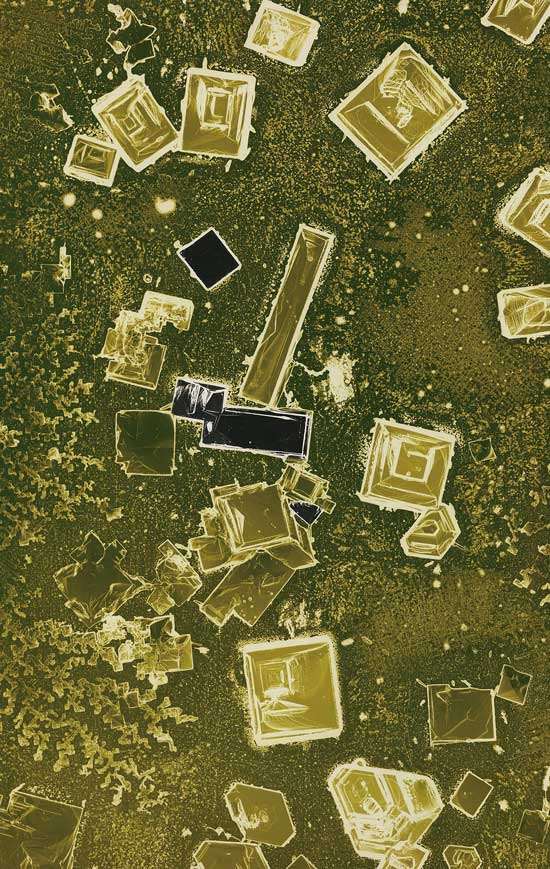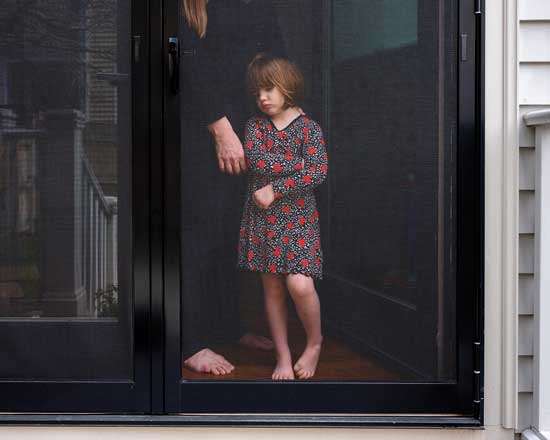

Those who have thus far been lucky enough to escape the worst outcomes of the Covid-19 crisis still exist in a surreal sort of limbo characterized by uncertainty and longing for contact with friends and loved ones. Smiles are concealed behind masks; there’s no shaking hands, much less hugging; and visits to friends and elders take place through windowpanes, at a distance, or not at all. From her kitchen in Brookline, Massachusetts, where she has been quarantining at home with her husband and six young adults (including her four children), Rania Matar gazed daily across the yard at her neighbor, working in her own kitchen. One day, she saw her neighbor sitting in her bay window, reading. “I found that so beautiful,” says Matar, “and I had an aha moment.”


That glimpse of her neighbor was the beginning of Matar’s ongoing series, Across Windows, which is scheduled to go on view in January of 2021 at the Cornell Fine Arts Museum at Rollins College in Orlando, Florida. She’s also been posting a selection of the images on Instagram, which is how she first put out the word that she was looking for subjects – people who lived within driving distance from her home, who were interested in being photographed, through a window, for Matar’s portrait project. It’s a simple conceit, but one that has produced a series of poignant, timely images.


The window (and occasionally a door) serves as a natural pictorial framing device in each portrait. It also becomes a stage for her more performative subjects (like Marina, who reclines, diva-like, in her window in a bright red dress, wearing matching lipstick and dark sunglasses), and for the familial narratives viewers project onto the pictures. There’s affection and love, but also tension and anxiety, boredom and impatience. There are a number of photographs of mothers and daughters, the focus of Matar’s earlier series Unspoken Conversations. In two images of young girls, a mother’s hands reach into the frame from above and settle on their daughters’ shoulders: hands in general, gesturing or caressing, are a focal point. In several photographs, the window frame isolates one subject from another (like Layla, the youngest girl in Minty, Kayla, Leyah, Layla, Cambridge, Massachusetts, who seems lost in her own world, separated from the rest of her family). But we, as viewers, can really only speculate, and the limitation of our connection is the subject of Matar’s photographs, too. The riot of reflections in the windowpanes – branches, the buildings across the street – often obscure her subjects. In that way, too, her portraits capture the current moment, when our contact with our loved ones is frustratingly partial.






